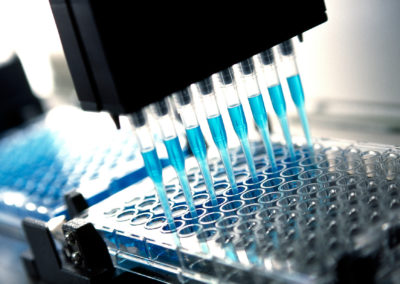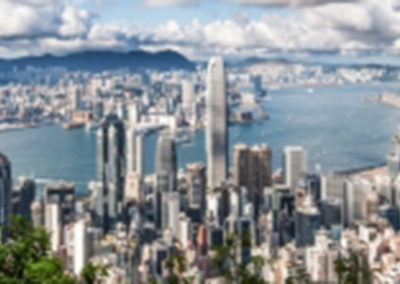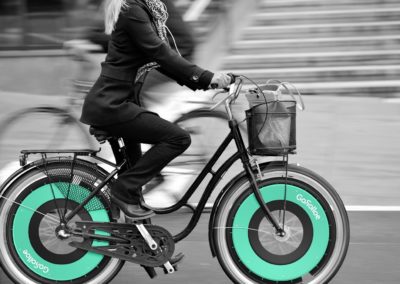COVID-19 brought parts of the economy to a standstill and the costs of furloughing great swathes of the UK workforce must be met. The Bank of England warned of the deepest recession on record, with the economy on course to shrink 14% resulting in job losses and reduced incomes. Imperial’s academics look at the next steps – and whether the economy can be re-built with cleaner and greener investment.
Climate change and the economy: Inextricably linked
Could the shock of the pandemic, coupled with the experiences of lockdown, translate into a transition to a greener economy (as suggested by the Grantham Institute)? Attitudes towards scientific advice might have changed. New, less polluting ways of working remotely might have been learned. And governments might embark on stimulus spending with a strong emphasis on investments in clean infrastructure and innovation. But, will the extraordinary financial burden of the lockdown constrain such spending, despite best intentions?
“The flash crash in global emissions due to lockdown measures will have no measurable impact on global temperatures by 2030; but the decisions we make this year about how to recover from this crisis can put us on a solid track to meet the Paris Agreement. Out of this tragedy comes an opportunity, but unless it is seized a more polluting next decade is not excluded,” Research co-author Dr Joeri Rogelj, Lecturer in Climate Change and the Environment at the Grantham Institute
Researchers have found that climate-friendly investment policies are the best medicine for a failing economy. Having catalogued more than 700 stimulus policies, conducted a global survey of 231 experts from 53 countries and considered learnings from the 2008 financial crisis, they found that green projects create more jobs and deliver higher short-term returns per dollar spent. As the cost of technologies continues to drop, businesses, consumers and governments save money over the long-term, when compared with traditional fiscal stimulus.
“Some of the changes forced upon us by this pandemic, including far more homeworking and far less travel, have inadvertently given us a tantalising glimpse of what a future with quieter, cleaner streets and less stressful commuting might look like.” Dr Ajay Gambhir, Senior Research Fellow at the Grantham Institute
Saving your startup
Imperial-backed ventures are showing other startups how to survive the pandemic – thanks to three steps. They demonstrate how, by adapting the revolutionary ‘lean startup methodology’ adopted by many entrepreneurs, you can still succeed despite the crisis. Finding customers virtually, spending downtime on design – and considering a different or digital path all considered.
Prepare for the next crisis
The economic impact of COVID-19 is sobering, far reaching and changing day to day. But could we have foreseen it? In the years since the crisis of 2008, financial institutions have been forced to measure risk in a way that other sectors haven’t. Banks have developed robust stress-testing measures to see how they would respond to a variety of risks and scenarios. But would the wider business world benefit from this rigour? If you can predict what the effects of a crisis might be on a specific business – you can better prepare for the unexpected.
From lockdown to recovery: The economic effects of COVID-19
The COVID-19 pandemic has been a huge shock to the UK economy, the scale of which has not been seen since the early 18th Century. Renowned British economist & Bank of England Monetary Policy committee Member Professor Jonathan Haskel, from Imperial College Business School, talked through the economic modelling of the initial recession including the interrelations between sectors and how lockdown cascaded falls in demand from closed sectors to the rest of the economy.
Hear his suggestion about how to model the recovery: what types of workers will be affected and how consumers will respond to unemployment and the fears of further infection? And what science and technology might be needed to improve people’s confidence about lifting lockdowns in the wake of an ongoing health crisis?
New ways to incorporate machine learning and AI
Data and cyber security expert Professor Deeph Chana spoke at length with Citi Group innovator Dr Prag Sharma at an event hosted by Imperial College Business School about the role that machine learning and AI can – and need – to play across all organisations in order to sustain growth, develop secure networks and make processes safer and more efficient. That is especially true with the huge rise in remote working in businesses that previously were able to manage network access and connections through a single controlled point within a data warehouse or local intranet systems.
Professor Chana is both Professor of Practice at Imperial College Business School and Co-Director of the Institute for Security Science and Technology at the College, and works with businesses and authorities around the world to help them understand and improve their use, deployment and management of new and emerging technologies.
Net-zero emissions economic recovery
Economic growth will be a high priority for all countries in the months and years following COVID-19. The transition to net zero emissions can significantly contribute to the recovery.
Economic impact of COVID-19
Reactions and analysis of the impact of coronavirus on business and the economy with opinion on economic recovery, government spending, interest rates, global supply chains, ability of businesses to respond and adapt – and carbon dividends.
COVID-19 Carbon tax
A carbon tax could both help pay for the enormous costs of the pandemic and encourage “clean” investment. Crucially, it should be levied in a few years’ time, when the UK economy has begun to recover
Coronavirus and consumer behaviour
In the past few months, online search volume for holiday destinations has plummeted – so has digital ad revenue. Consumers are spending more on board games, yeast, and home office furniture.What will be the long-term effects of the coronavirus (COVID-19) pandemic on consumer behaviour?
Why we should stress-test corporations
Fallout from the coronavirus has been punishing: a reduced workforce, a drop in demand, tourism and air travel have been devasted. And the grocery sector has been unprepared for the surge in demand.
Reshaping capital markets to encourage green investment
Political will and significant increase in financial investment in low-carbon infrastructure are key to achieving net-zero carbon, with around $90 trillion is predicted to be needed, globally, before 2030. With a broad-based commitment, the UK can become a world leader in clean energy and profitable decarbonisation.
Find out how Imperial can help you with your specific needs be they immediate or a longer term goal.
Who to contact:

Jamie Pombeiro de Sousa
Engagement Manager
For Materials, Manufacturing, Mechanical Engineering, Computing, Cyber Security, Data Science and AI




